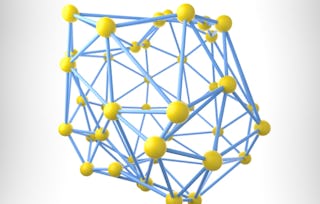Enhance your analytical skills with "Think Critically: Deductive Reasoning and Mental Models." This innovative course brings together Barbara Oakley and Terry Sejnowski, the team behind the wildly popular "Learning How to Learn," along with Adam Trybus, Professor of Logic at the Institute of Philosophy, Jagiellonian University in Krakow.

Think Critically: Deductive Reasoning and Mental Models

Think Critically: Deductive Reasoning and Mental Models
This course is part of Critical Thinking: A Brain-Based Guide for the ChatGPT Era Specialization



Instructors: Dr. Terrence Sejnowski
Top Instructor
3,930 already enrolled
Included with
40 reviews
Recommended experience
What you'll learn
Apply principles of deductive reasoning to analyze arguments.
Identify how mental models and cognitive biases affect critical thinking.
Evaluate the strengths and limitations of different logical approaches, including classical and non-classical logics.
Skills you'll gain
Details to know

Add to your LinkedIn profile
2 assignments
See how employees at top companies are mastering in-demand skills

Build your subject-matter expertise
- Learn new concepts from industry experts
- Gain a foundational understanding of a subject or tool
- Develop job-relevant skills with hands-on projects
- Earn a shareable career certificate

There are 2 modules in this course
Embark on a fascinating journey into the world of logical thinking and critical reasoning. This module demystifies deductive reasoning, exploring its foundations from ancient philosophers to modern neuroscience. You'll discover the essence of deductive logic and how it shapes our arguments, key principles like non-contradiction and excluded middle, and how our brains create mental models that influence our reasoning. Through engaging examples and insights from experts in philosophy and neuroscience, you'll learn to spot logical fallacies, understand the brain's role in processing narratives, and even grapple with mind-bending concepts like logical explosions. The module also reveals the surprising limits of classical logic and introduces alternative approaches, equipping you with techniques to analyze arguments by focusing on their logical structure. Whether you're a business leader, a student, or simply curious about sharpening your critical thinking skills, this module offers valuable tools to enhance your logical reasoning abilities and make more informed decisions.
What's included
4 videos1 reading1 assignment
Prepare to challenge your perspective as we dive into the world where logic meets real life, and truth isn’t always as simple as it seems. This module goes beyond just understanding deductive reasoning—it’s about recognizing the hidden biases and mental roadblocks that can twist even the most logical minds. You’ll explore why smart people often jump to conclusions, how group dynamics shape reasoning, and why convincing arguments aren’t just about airtight logic but also about recognizing when our own beliefs cloud our judgment. We’ll dig into the principles of critical thinking, exposing why even the sharpest thinkers can fall prey to confirmation bias and the allure of “my-side” thinking. You’ll see how the need to belong can override the quest for truth and learn strategies to break free from the soldier mindset to become a scout—seeking what’s real, not just what you want to see. By the end of this module, you’ll be equipped to dissect arguments with a new level of intellectual honesty, challenge your assumptions, and navigate the messy realities of reasoning in the real world.
What's included
5 videos1 reading1 assignment
Earn a career certificate
Add this credential to your LinkedIn profile, resume, or CV. Share it on social media and in your performance review.
Instructors

Offered by
Explore more from Business Essentials
 Status: Free Trial
Status: Free TrialDeep Teaching Solutions
 Status: Free Trial
Status: Free TrialDeep Teaching Solutions
 Status: Free Trial
Status: Free TrialDuke University
 Status: Preview
Status: PreviewThe University of North Carolina at Chapel Hill
Why people choose Coursera for their career

Felipe M.

Jennifer J.

Larry W.

Chaitanya A.
Learner reviews
- 5 stars
85%
- 4 stars
12.50%
- 3 stars
0%
- 2 stars
2.50%
- 1 star
0%
Showing 3 of 40
Reviewed on Oct 9, 2024
complex topic is explained with simple terms with nalagies and examples. needs lots of revisions and dedicated attention

Open new doors with Coursera Plus
Unlimited access to 10,000+ world-class courses, hands-on projects, and job-ready certificate programs - all included in your subscription
Advance your career with an online degree
Earn a degree from world-class universities - 100% online
Join over 3,400 global companies that choose Coursera for Business
Upskill your employees to excel in the digital economy
Frequently asked questions
To access the course materials, assignments and to earn a Certificate, you will need to purchase the Certificate experience when you enroll in a course. You can try a Free Trial instead, or apply for Financial Aid. The course may offer 'Full Course, No Certificate' instead. This option lets you see all course materials, submit required assessments, and get a final grade. This also means that you will not be able to purchase a Certificate experience.
When you enroll in the course, you get access to all of the courses in the Specialization, and you earn a certificate when you complete the work. Your electronic Certificate will be added to your Accomplishments page - from there, you can print your Certificate or add it to your LinkedIn profile.
Yes. In select learning programs, you can apply for financial aid or a scholarship if you can’t afford the enrollment fee. If fin aid or scholarship is available for your learning program selection, you’ll find a link to apply on the description page.

